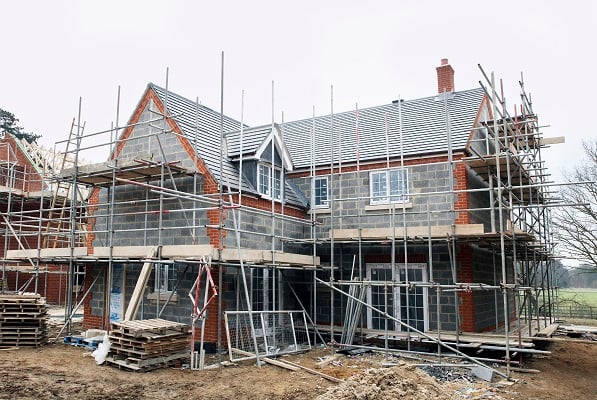Evaluating a property investment opportunity is part science, part art. It involves in-depth analysis of many data points, combining this analysis with an understanding of local markets, macroeconomic trends and ever-evolving regulatory frameworks. A sprinkling of experience goes a long way, too.
In the current climate, with sticky inflation and rising interest rates affecting the actions of investors, businesses and consumers alike, making confident predictions regarding any asset’s current and future value becomes more difficult.
At Shojin, we provide fractional investment opportunities involving UK-based property developments. Evaluating the merits of any project requires thorough due diligence, with the challenging economic climate only heightening the rigour with which any development (and developer) must be assessed before it can be presented to investors.
So, what goes into assessing a potential property investment, specifically one that is still under construction? And what are the boxes that must be ticked when financially backing a property development?
The fundamentals
Central to any assessment must be a valuation of the asset, whether it is ready to be put on the market or if it is still under construction.
Sales comparisons, income capitalisation, land value and building costs must all be assessed as part of an accurate valuation. However, a valuation must also carefully consider broader social and economic trends – critical to this is understanding supply and demand, and the ways in which both sides are evolving as a result of macroeconomic factors.
Lenders will rely upon their own valuers, or a panel of trusted valuers, to assess an asset’s worth in the current market. This is where qualifications through bodies such as the Royal Institution of Chartered Surveyors (RICS) are extremely important for professional valuers, underlining that they have refined both the art and science involved in this process.
Where off-plan valuations are concerned, there are further considerations. This is the space Shojin operates in – assessing planned developments (whether the construction work has begun yet or not) to ensure we, and our network of investors, back the right opportunities.
The old property adage of ‘location, location, location’ is particularly pertinent. After all, a successful investment is characterised by regular rental yields, the ability to find occupants, strong capital growth and the potential ease of sale. Location is a driving factor of all these considerations, and this applies to all categories – residential, commercial, purpose-built student accommodation, and so forth.
We must be absolutely confident that the location for the development will underpin the long-term success of the project.
Backing the right projects
Thorough due diligence in evaluating the value of a property – or a development under construction – is of fundamental importance. But so too is assessing the quality of the developer itself.
Firstly, committing time and resource to evaluating a developer’s plans is a must. This will likely have been satisfied when establishing the valuation and merits, of the properties that are being built. But it is important to establish that all the details have been carefully thought through, complications – such as building material cost increases – are accounted for, and the proposed end product is likely to satisfy market demand.
For instance, if it is a build-to-rent project, ensuring the finished building will meet the standards and needs of today’s renters is vitally important. One may look to see if a project will include leisure space, gyms or coworking areas – all amenities that are increasingly in demand in the rental market.
This is, naturally, far more important to the investor if they are making an equity investment – that is to say, investing to own the completed asset to rent out, live in or sell on. For debt investments, where the investment is returned over an agreed term with set returns, the eventual value of the asset becomes slightly less important, but not irrelevant; ensuring market demand for the product is still a key indicator of the project’s long-term success and, in turn, its likelihood of being completed.
Choosing the developer carefully
Whether making an equity or debt investment, when investing in property developments, working with developers that are experienced and have a proven track record in successfully delivering on projects is essential.
Looking through a developer’s past portfolio, or indeed even visiting previous projects or current construction sites, is a good way of going about this. Shojin will conduct regular site visits before and during a project – this will showcase the quality of work that can be expected and offer assurance that the investment will result in a great property.
Further, one must consider the funding stack. Or, in other words, the complete picture of where the financing is coming from for a property development.
Private investors might, for example, be committing 20% of a project cost in the form of mezzanine finance (debt investment) or deposits from off-plan sales (equity). So, establishing the amount being committed by the developer and how much will be senior finance (development finance, likely from an institution) is necessary in ensuring enough capital is available from reliable sources to enable the completion of the project.
Always ask questions
Naturally, an investor would expect for an investment provider to have completed this level of rigorous due diligence. Nonetheless, it is important that investors ask questions to satisfy any concerns they might have.
The better, more reputable investment partners will have the answers investors need, assuring them of the quality of an investment opportunity and the level of work undertaken to make that judgement.
In the current economic climate, critical assessment of investment opportunities (of any type) is more important than ever. In the property sector, it is essential that investment providers double-down on due diligence to cherry-pick the best opportunities available.
Jatin Ondhia is co-Founder and CEO of Shojin, an FCA-regulated online real estate investment platform that lowers the barriers to entry for individuals across the globe looking to access institutional-grade, UK-based real estate investment opportunities. He served as Director for UBS for nine years, using his wealth of knowledge and experience to provide strategic fixed-income solutions to the bank’s top clients and expand the UBS Delta businesses in the intermediary space. Jatin has over 20 years of property investment experience.






Leave a Comment